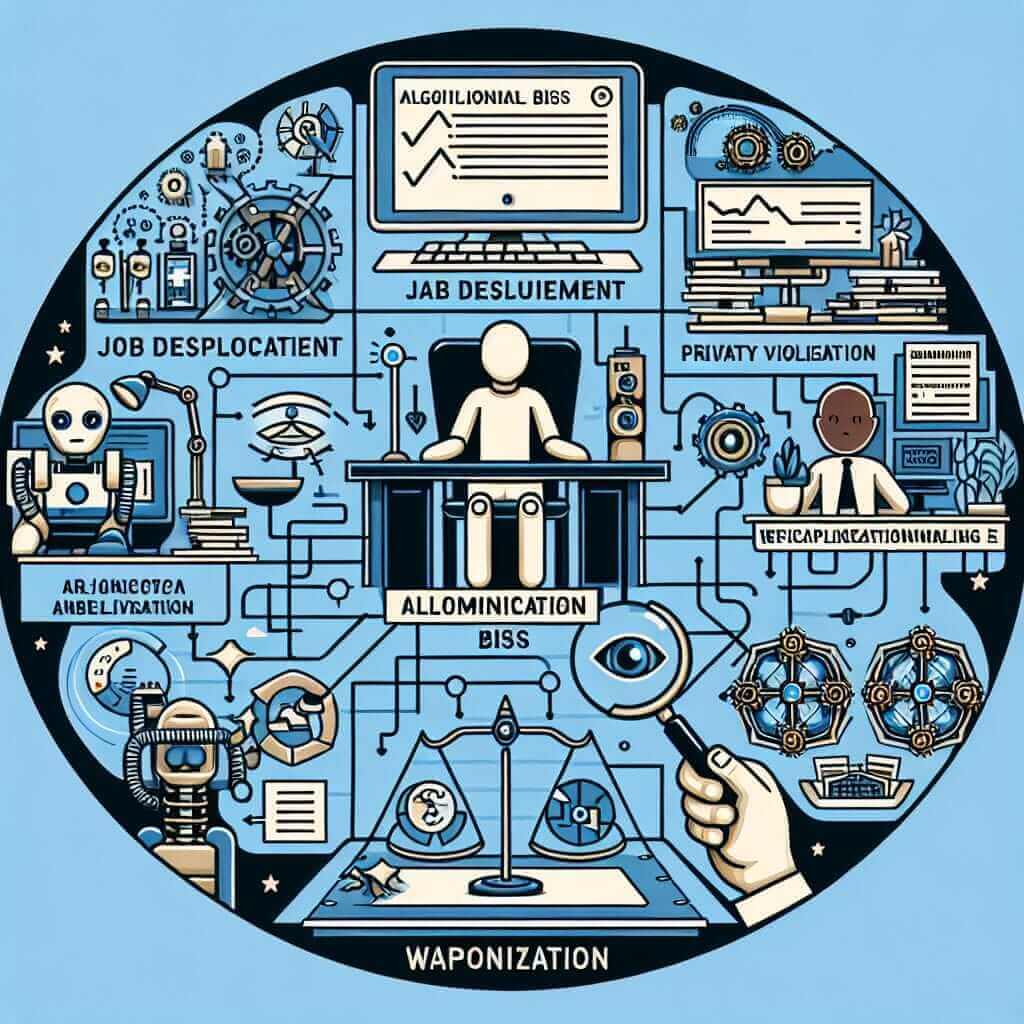As an experienced IELTS instructor, I often encounter students who feel daunted by the prospect of discussing complex topics like the ethical implications of AI. This isn’t unusual! AI’s rapid evolution presents numerous ethical dilemmas that are both fascinating and challenging to articulate.
This guide aims to equip you with the strategies and language needed to confidently address questions about AI ethics in the IELTS Speaking exam.
Understanding the Task: Why AI Ethics Matter in IELTS
The IELTS Speaking test assesses your ability to communicate effectively in English. While grammatical accuracy and vocabulary are crucial, examiners also evaluate your capacity to:
- Develop and explain ideas coherently: Can you present a clear and logical argument?
- Support your points with examples: Can you illustrate your ideas with relevant real-world situations?
- Analyze complex issues: Can you critically examine different facets of a topic?
Questions about AI ethics directly tap into these skills. You’ll need to demonstrate an understanding of the potential benefits and risks associated with AI and articulate your perspective clearly.
Strategies for Answering “Ethical Considerations of AI” Questions
Let’s break down a step-by-step approach to answering these questions effectively:
1. Identify Key Ethical Concerns
Begin by brainstorming a list of ethical considerations related to AI. Here are some common themes:
- Job displacement: Will AI-powered automation lead to widespread unemployment?
- Algorithmic bias: Can AI systems perpetuate existing societal biases based on the data they are trained on?
- Privacy violation: How can we ensure the responsible use of personal data in AI applications like facial recognition?
- Weaponization of AI: What are the ethical implications of autonomous weapons systems?
- Accountability: Who is responsible when AI systems make significant decisions or errors?
2. Structure Your Response
A well-structured response is crucial for coherence and clarity. Consider using a simple framework like this:
- Introduction: Briefly state your overall stance or acknowledge the complexity of the issue.
- Example: “The ethical considerations surrounding artificial intelligence are multifaceted and require careful consideration.”
- Main Points: Discuss 2-3 key ethical concerns, dedicating a separate point to each.
- Example: “One pressing concern is the potential for AI to exacerbate existing inequalities. If algorithms are trained on biased data, they can perpetuate discriminatory practices…”
- Supporting Examples: Provide specific examples to illustrate your points.
- Example: “For instance, there have been cases of facial recognition software misidentifying people of color, highlighting the dangers of algorithmic bias.”
- Conclusion: Briefly summarize your views or offer a concluding thought.
- Example: “In conclusion, while AI holds immense potential, it’s crucial to address these ethical challenges proactively to ensure a fair and just deployment of this powerful technology.”
3. Use Precise Language
Choose your words carefully to express your ideas accurately. Here are some useful phrases:
- To express concern: “A significant concern is…”, “This raises ethical questions about…”, “It’s crucial to address the potential for…”
- To provide examples: “For instance…”, “A case in point is…”, “This is evident in situations where…”
- To express your opinion: “In my view…”, “I believe that…”, “From my perspective…”

Sample IELTS Speaking Question & Response
Let’s look at a potential IELTS Speaking Part 3 question and a sample response using the strategies discussed:
Examiner: “What are some of the ethical considerations surrounding the increasing use of artificial intelligence?”
Candidate: “The rapid development of artificial intelligence undoubtedly presents a range of ethical challenges that require careful thought. One major concern is the potential for job displacement as AI-powered automation becomes more sophisticated. For instance, in manufacturing, robots are already performing tasks previously done by humans. This raises concerns about unemployment and the need for retraining programs. Furthermore, there’s a significant risk of algorithmic bias. If AI systems are trained on biased data, they can perpetuate and even amplify existing societal prejudices. A clear example of this is seen in some facial recognition systems that have shown to be less accurate in identifying individuals with darker skin tones, highlighting the potential for discrimination.”
Final Tips for Success
- Stay informed: Keep abreast of current events related to AI and its ethical implications.
- Practice regularly: Practice discussing complex topics in English to improve your fluency and confidence.
- Don’t be afraid to share your opinion: The IELTS exam values your ability to formulate and express your own viewpoints.
Remember, the key is to demonstrate your ability to communicate effectively about complex issues. By following these strategies and practicing regularly, you can approach questions about AI ethics with confidence and achieve your desired IELTS score.